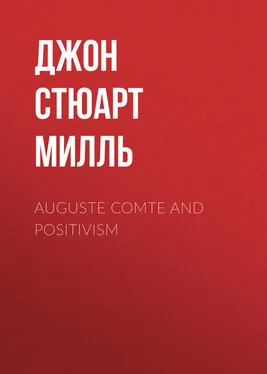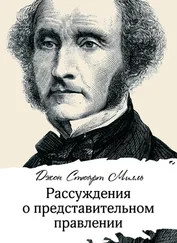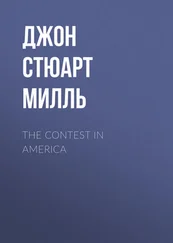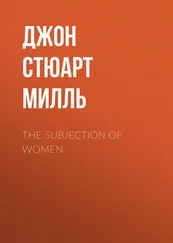Джон Милль - Auguste Comte and Positivism
Здесь есть возможность читать онлайн «Джон Милль - Auguste Comte and Positivism» — ознакомительный отрывок электронной книги совершенно бесплатно, а после прочтения отрывка купить полную версию. В некоторых случаях можно слушать аудио, скачать через торрент в формате fb2 и присутствует краткое содержание. Жанр: Философия, literature_19, foreign_antique, foreign_prose, на английском языке. Описание произведения, (предисловие) а так же отзывы посетителей доступны на портале библиотеки ЛибКат.
- Название:Auguste Comte and Positivism
- Автор:
- Жанр:
- Год:неизвестен
- ISBN:нет данных
- Рейтинг книги:4 / 5. Голосов: 1
-
Избранное:Добавить в избранное
- Отзывы:
-
Ваша оценка:
- 80
- 1
- 2
- 3
- 4
- 5
Auguste Comte and Positivism: краткое содержание, описание и аннотация
Предлагаем к чтению аннотацию, описание, краткое содержание или предисловие (зависит от того, что написал сам автор книги «Auguste Comte and Positivism»). Если вы не нашли необходимую информацию о книге — напишите в комментариях, мы постараемся отыскать её.
Auguste Comte and Positivism — читать онлайн ознакомительный отрывок
Ниже представлен текст книги, разбитый по страницам. Система сохранения места последней прочитанной страницы, позволяет с удобством читать онлайн бесплатно книгу «Auguste Comte and Positivism», без необходимости каждый раз заново искать на чём Вы остановились. Поставьте закладку, и сможете в любой момент перейти на страницу, на которой закончили чтение.
Интервал:
Закладка:
But though detached truths relating to the more complex order of phaenomena may be empirically observed, and a few of them even scientifically established, contemporaneously with an early stage of some of the sciences anterior in the scale, such detached truths, as M. Littré justly remarks, do not constitute a science. What is known of a subject, only becomes a science when it is made a connected body of truth; in which the relation between the general principles and the details is definitely made out, and each particular truth can be recognized as a case of the operation of wider laws. This point of progress, at which the study passes from the preliminary state of mere preparation, into a science, cannot be reached by the more complex studies until it has been attained by the simpler ones. A certain regularity of recurrence in the celestial appearances was ascertained empirically before much progress had been made in geometry; but astronomy could no more be a science until geometry was a highly advanced one, than the rule of three could have been practised before addition and subtraction. The truths of the simpler sciences are a part of the laws to which the phaenomena of the more complex sciences conform: and are not only a necessary element in their explanation, but must be so well understood as to be traceable through complex combinations, before the special laws which co-exist and co-operate with them can be brought to light. This is all that M. Comte affirms, and enough for his purpose. 5 5 The only point at which the general principle of the series fails in its application, is the subdivision of Physics; and there, as the subordination of the different branches scarcely exists, their order is of little consequence. Thermology, indeed, is altogether an exception to the principle of decreasing generality, heat, as Mr Spencer truly says being as universal as gravitation. But the place of Thermology is marked out, within certain narrow limits, by the ends of the classification, though not by its principle. The desideratum is, that every science should precede those which cannot be scientifically constitute or rationally studied until it is known. It is as a means to this end, that the arrangement of the phaenomena in the order of their dependence on one another is important. Now, though heat is as universal a phaenomenon as any which external nature presents, its laws do not affect, in any manner important to us, the phaenomena of Astronomy, and operate in the other branches of Physics only as slight modifying agencies, the consideration of which may be postponed to a rather advanced stage. But the phaenomena of Chemistry and Biology depend on them often for their very existence. The ends of the classification require therefore that Thermology should precede Chemistry and Biology, but do not demand that it should be thrown farther back. On the other hand, those same ends, in another point of view, require that it should be subsequent to Astronomy, for reasons not of doctrine but of method: Astronomy being the best school of the true art of interpreting Nature, by which Thermology profits like other sciences, but which it was ill adapted to originate.
He no doubt occasionally indulges in more unqualified expressions than can be completely justified, regarding the logical perfection of the construction of his series, and its exact correspondence with the historical evolution of the sciences; exaggerations confined to language, and which the details of his exposition often correct. But he is sufficiently near the truth, in both respects, for every practical purpose. 6 6 The philosophy of the subject is perhaps nowhere so well expressed as in the "Système de Politique Positive" (iii. 41). "Conçu logiquement, l'ordre suivant lequel nos principales théories accomplissent l'évolution fondamentale résulte nécessairement de leur dépendence mutuelle. Toutes les sciences peuvent, sans doute, être ébauchées à la fois: leur usage pratique exige même cette culture simultanée. Mais elle ne peut concerner que les inductions propres à chaque classe de spéculations. Or cet essor inductif ne saurait fournir des principes suffisants qu'envers les plus simples études. Partout ailleurs, ils ne peuvent être établis qu'en subordonnant chaque genre d'inductions scientifiques à l'ensemble des déductions emanées des domaines moins compliqués, et dès-lors moins dépendants. Ainsi nos diverses théories reposent dogmatiquement les unes sur les autres, suivant un ordre invariable, qui doit régler historiquement leur avénement décisif, les plus indépendantes ayant toujours dû se développer plus tôt."
Minor inaccuracies must often be forgiven even to great thinkers. Mr Spencer, in the very-writings in which he criticises M. Comte, affords signal instances of them. 7 7 "Science," says Mr Spencer in his "Genesis," "while purely inductive is purely qualitative… All quantitative prevision is reached deductively; induction can achieve only qualitative prevision." Now, if we remember that the very first accurate quantitative law of physical phaenomena ever established, the law of the accelerating force of gravity, was discovered and proved by Galileo partly at least by experiment; that the quantitative laws on which the whole theory of the celestial motions is grounded, were generalized by Kepler from direct comparison of observations; that the quantitative law of the condensation of gases by pressure, the law of Boyle and Mariotte, was arrived at by direct experiment; that the proportional quantities in which every known substance combines chemically with every other, were ascertained by innumerable experiments, from which the general law of chemical equivalents, now the ground of the most exact quantitative previsions, was an inductive generalization; we must conclude that Mr Spencer has committed himself to a general proposition, which a very slight consideration of truths perfectly known to him would have shown to be unsustainable. Again, in the very pamphlet in which Mr Spencer defends himself against the supposition of being a disciple of M. Comte ("The Classification of the Sciences," p. 37), he speaks of "M. Comte's adherent, Mr Buckle." Now, except in the opinion common to both, that history may be made a subject of science, the speculations of these two thinkers are not only different, but run in different channels, M. Comte applying himself principally to the laws of evolution common to all mankind, Mr Buckle almost exclusively to the diversities: and it may be affirmed without presumption, that they neither saw the same truths, nor fell into the same errors, nor defended their opinions, either true or erroneous, by the same arguments. Indeed, it is one of the surprising things in the case of Mr Buckle as of Mr Spencer, that being a man of kindred genius, of the same wide range of knowledge, and devoting himself to speculations of the same kind, he profited so little by M. Comte. These oversights prove nothing against the general accuracy of Mr Spencer's acquirements. They are mere lapses of inattention, such as thinkers who attempt speculations requiring that vast multitudes of facts should be kept in recollection at once, can scarcely hope always to avoid.
Combining the doctrines, that every science is in a less advanced state as it occupies a higher place in the ascending scale, and that all the sciences pass through the three stages, theological, metaphysical, and positive, it follows that the more special a science is, the tardier is it in effecting each transition, so that a completely positive state of an earlier science has often coincided with the metaphysical state of the one next to it, and a purely theological state of those further on. This statement correctly represents the general course of the facts, though requiring allowances in the detail. Mathematics, for example, from the very beginning of its cultivation, can hardly at any time have been in the theological state, though exhibiting many traces of the metaphysical. No one, probably, ever believed that the will of a god kept parallel lines from meeting, or made two and two equal to four; or ever prayed to the gods to make the square of the hypothenuse equal to more or less than the sum of the squares of the sides. The most devout believers have recognized in propositions of this description a class of truths independent of the devine omnipotence. Even among the truths which popular philosophy calls by the misleading name of Contingent the few which are at once exact and obvious were probably, from the very first, excepted from the theological explanation. M. Comte observes, after Adam Smith, that we are not told in any age or country of a god of Weight. It was otherwise with Astronomy: the heavenly bodies were believed not merely to be moved by gods, but to be gods themselves: and when this theory was exploded, there movements were explained by metaphysical conceptions; such as a tendency of Nature to perfection, in virtue of which these sublime bodies, being left to themselves, move in the most perfect orbit, the circle. Even Kepler was full of fancies of this description, which only terminated when Newton, by unveiling the real physical laws of the celestial motions, closed the metaphysical period of astronomical science. As M. Comte remarks, our power of foreseeing phaenomena, and our power of controlling them, are the two things which destroy the belief of their being governed by changeable wills. In the case of phaenomena which science has not yet taught us either to foresee or to control, the theological mode of thought has not ceased to operate: men still pray for rain, or for success in war, or to avert a shipwreck or a pestilence, but not to put back the stars in their courses, to abridge the time necessary for a journey, or to arrest the tides. Such vestiges of the primitive mode of thought linger in the more intricate departments of sciences which have attained a high degree of positive development. The metaphysical mode of explanation, being less antagonistic than the theological to the idea of invariable laws, is still slower in being entirely discarded. M. Comte finds remains of it in the sciences which are the most completely positive, with the single exception of astronomy, mathematics itself not being, he thinks, altogether free from them: which is not wonderful, when we see at how very recent a date mathematicians have been able to give the really positive interpretation of their own symbols. 8 8 We refer particularly to the mystical metaphysics connected with the negative sign, imaginary quantities, infinity and infinitesimals, &c., all cleared up and put on a rational footing in the highly philosophical treatises of Professor De Morgan.
We have already however had occasion to notice M. Comte's propensity to use the term metaphysical in cases containing nothing that truly answers to his definition of the word. For instance, he considers chemistry as tainted with the metaphysical mode of thought by the notion of chemical affinity. He thinks that the chemists who said that bodies combine because they have an affinity for each other, believed in a mysterious entity residing in bodies and inducing them to combine. On any other supposition, he thinks the statement could only mean that bodies combine because they combine. But it really meant more. It was the abstract expression of the doctrine, that bodies have an invariable tendency to combine with one thing in preference to another: that the tendencies of different substances to combine are fixed quantities, of which the greater always prevails over the less, so that if A detaches B from C in one case it will do so in every other; which was called having a greater attraction, or, more technically, a greater affinity for it. This was not a metaphysical theory, but a positive generalization, which accounted for a great number of facts, and would have kept its place as a law of nature, had it not been disproved by the discovery of cases in which though A detached B from C in some circumstances, C detached it from A in others, showing the law of elective chemical combination to be a less simple one than had at first been supposed. In this case, therefore, M. Comte made a mistake: and he will be found to have made many similar ones. But in the science next after chemistry, biology, the empty mode of explanation by scholastic entities, such as a plastic force, a vital principle, and the like, has been kept up even to the present day. The German physiology of the school of Oken, notwithstanding his acknowledged genius, is almost as metaphysical as Hegel, and there is in France a quite recent revival of the Animism of Stahl. These metaphysical explanations, besides their inanity, did serious harm, by directing the course of positive scientific inquiry into wrong channels. There was indeed nothing to prevent investigating the mode of action of the supposed plastic or vital force by observation and experiment; but the phrases gave currency and coherence to a false abstraction and generalization, setting inquirers to look out for one cause of complex phaenomena which undoubtedly depended on many.
Интервал:
Закладка:
Похожие книги на «Auguste Comte and Positivism»
Представляем Вашему вниманию похожие книги на «Auguste Comte and Positivism» списком для выбора. Мы отобрали схожую по названию и смыслу литературу в надежде предоставить читателям больше вариантов отыскать новые, интересные, ещё непрочитанные произведения.
Обсуждение, отзывы о книге «Auguste Comte and Positivism» и просто собственные мнения читателей. Оставьте ваши комментарии, напишите, что Вы думаете о произведении, его смысле или главных героях. Укажите что конкретно понравилось, а что нет, и почему Вы так считаете.











